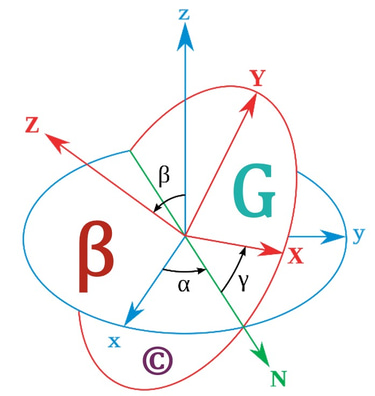The Role of Electrical Engineers in Building Smart Cities
The concept of smart cities is no longer a futuristic idea—it’s a reality being built today. Smart cities leverage technology to improve urban living, from energy efficiency and transportation to public safety and sustainability. At the heart of this transformation are electrical engineers, who design and implement the systems that make smart cities possible. In this blog, we’ll explore the critical role electrical engineers play in building smart cities and how their expertise is shaping the urban landscapes of tomorrow.
ELECTRICAL ENGINEERINGSUSTAINABILITYENERGY
Engr. Benjamin V. Gonzales Jr.
6/5/20252 min read
1. Designing Smart Energy Systems
One of the cornerstones of a smart city is an efficient and sustainable energy system. Electrical engineers are at the forefront of designing these systems.
Key Contributions:
Smart Grids: Engineers design grids that integrate renewable energy, energy storage, and real-time monitoring to optimize energy use.
Microgrids: These localized energy systems provide resilience and reliability, especially during emergencies.
Energy Management Systems: Engineers develop systems that monitor and control energy consumption in buildings, reducing waste and costs.
Example:
In Barcelona, Spain, smart grids and energy management systems have reduced energy consumption by 30% in public buildings.
2. Building Intelligent Transportation Systems
Transportation is a major focus of smart cities, and electrical engineers are key to making it smarter and more efficient.
Key Contributions:
Electric Vehicles (EVs): Engineers design charging infrastructure and battery systems to support the growing adoption of EVs.
Traffic Management: AI-powered systems optimize traffic flow, reducing congestion and emissions.
Autonomous Vehicles: Engineers develop the sensors, communication systems, and control algorithms that enable self-driving cars.
Example:
Singapore uses intelligent transportation systems to manage traffic and reduce commute times by 15%.
3. Developing Smart Lighting Solutions
Lighting is a critical component of urban infrastructure, and electrical engineers are making it smarter and more energy-efficient.
Key Contributions:
LED Lighting: Engineers design and implement LED systems that consume less energy and last longer than traditional lighting.
Smart Streetlights: These lights adjust brightness based on time of day, weather, and pedestrian activity, saving energy and improving safety.
IoT Integration: Engineers connect lighting systems to the Internet of Things (IoT) for remote monitoring and control.
Example:
Los Angeles has installed 140,000 smart streetlights, reducing energy costs by 63%.
4. Enhancing Public Safety and Security
Electrical engineers play a vital role in creating safer cities through advanced surveillance and emergency response systems.
Key Contributions:
Smart Surveillance: Engineers design camera systems with AI-powered analytics to detect and respond to threats in real-time.
Emergency Response Systems: Engineers develop communication networks that ensure first responders can coordinate effectively during emergencies.
Disaster-Resilient Infrastructure: Engineers design systems that can withstand natural disasters and recover quickly.
Example:
In New York City, smart surveillance systems have reduced crime rates by 30% in high-risk areas.
5. Enabling Smart Buildings
Buildings are a major focus of smart cities, and electrical engineers are transforming them into intelligent, energy-efficient spaces.
Key Contributions:
Building Automation Systems: Engineers design systems that control lighting, HVAC, and security, optimizing energy use and comfort.
Energy-Efficient Design: Engineers incorporate renewable energy sources, such as solar panels, into building designs.
IoT Integration: Engineers connect building systems to the IoT for real-time monitoring and control.
Example:
The Edge in Amsterdam, often called the world’s smartest building, uses IoT and AI to reduce energy consumption by 70%.
6. Supporting Sustainable Urban Development
Sustainability is a core principle of smart cities, and electrical engineers are driving innovations that reduce environmental impact.
Key Contributions:
Renewable Energy Integration: Engineers design systems that integrate solar, wind, and other renewable energy sources into urban infrastructure.
Waste Management: Engineers develop smart waste collection systems that optimize routes and reduce emissions.
Water Management: Engineers design systems that monitor and optimize water use, reducing waste and ensuring supply.
Example:
Copenhagen aims to become carbon-neutral by 2025, with electrical engineers playing a key role in its sustainable urban development.
The Future of Electrical Engineers in Smart Cities
As smart cities continue to evolve, the role of electrical engineers will become even more critical. Here are some trends to watch:
5G Networks: Engineers will design and implement the infrastructure for ultra-fast, reliable communication.
AI and Big Data: Engineers will use AI and data analytics to optimize urban systems and improve decision-making.
Resilience and Adaptability: Engineers will design systems that can adapt to changing conditions and withstand disruptions.
Conclusion
Electrical engineers are the unsung heroes of smart cities, designing the systems that make urban living more efficient, sustainable, and safe. From energy and transportation to public safety and sustainability, their expertise is shaping the cities of the future. As the world continues to urbanize, the role of electrical engineers will only grow in importance.





